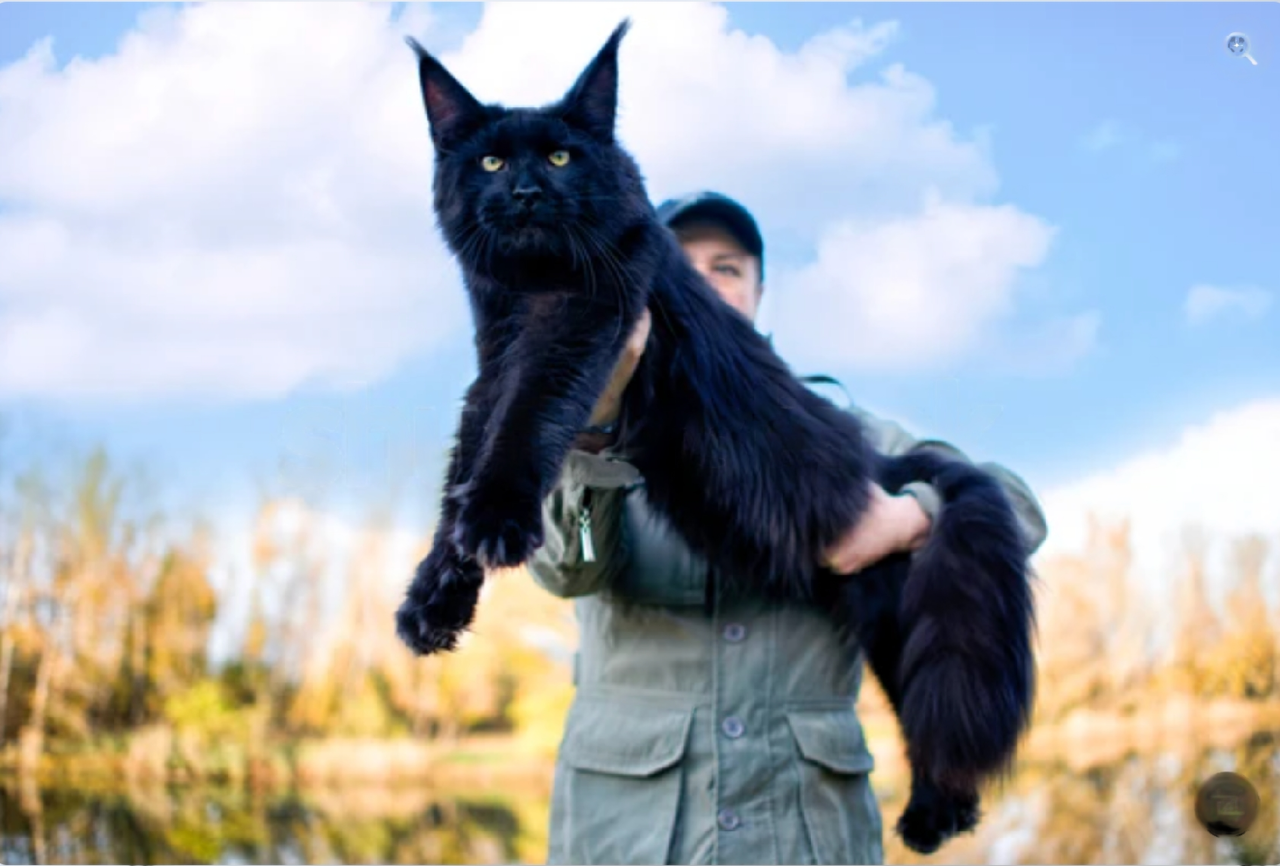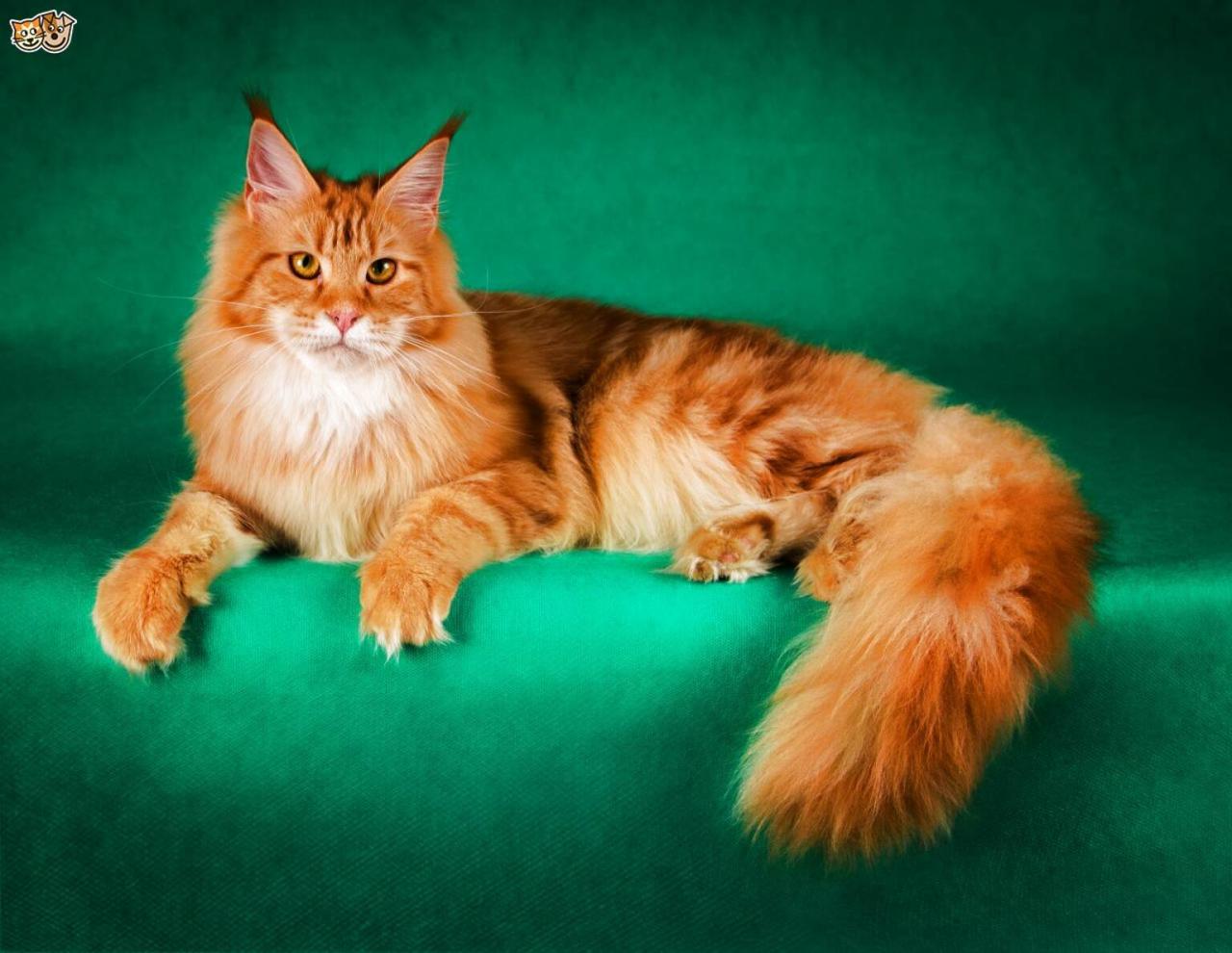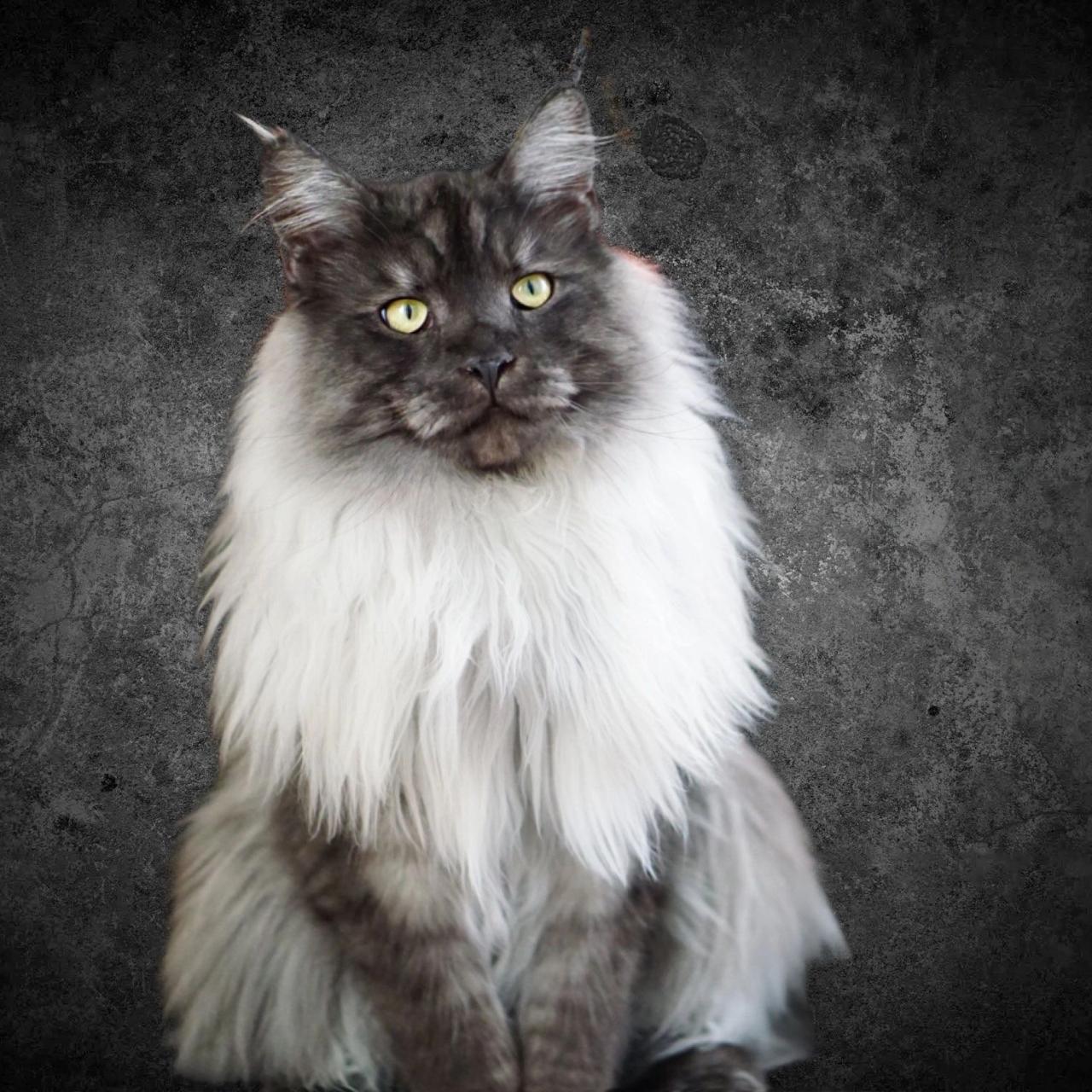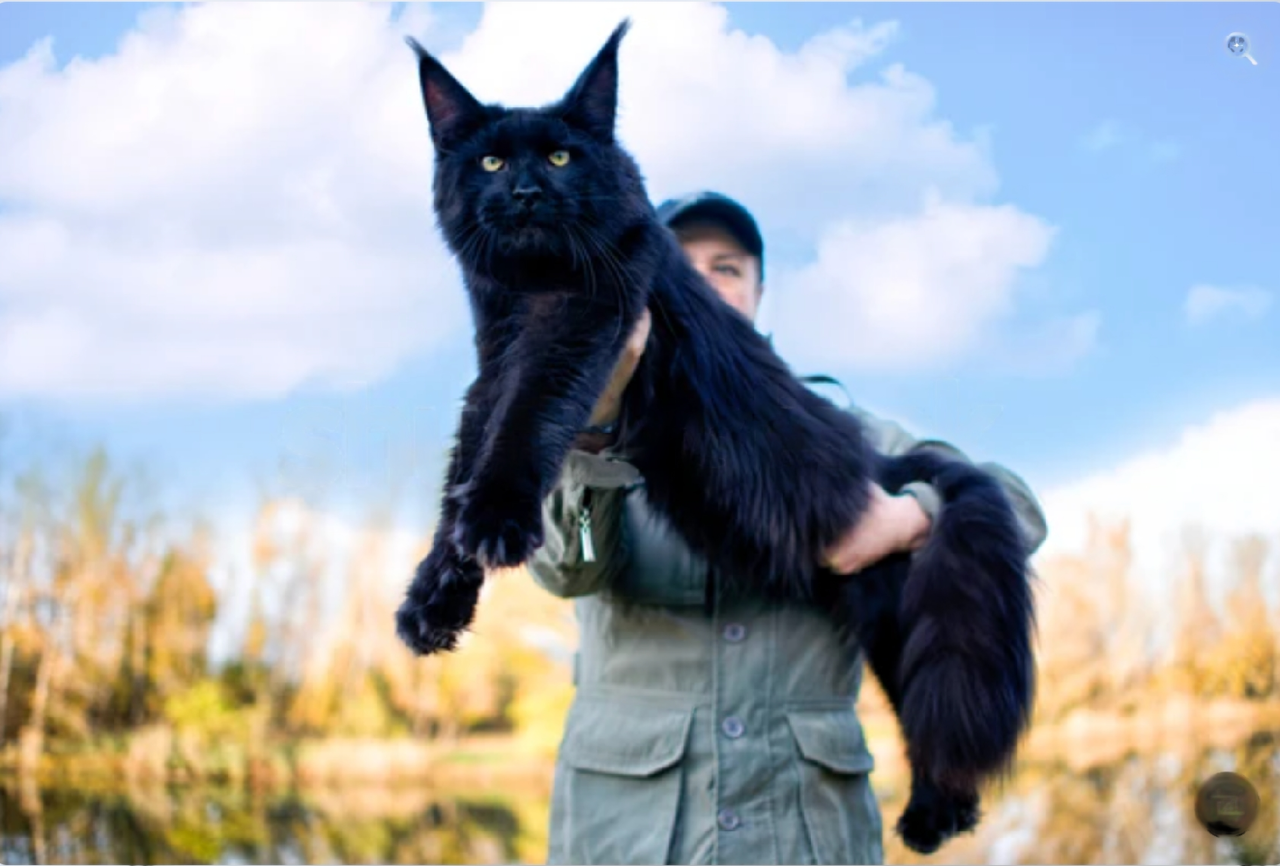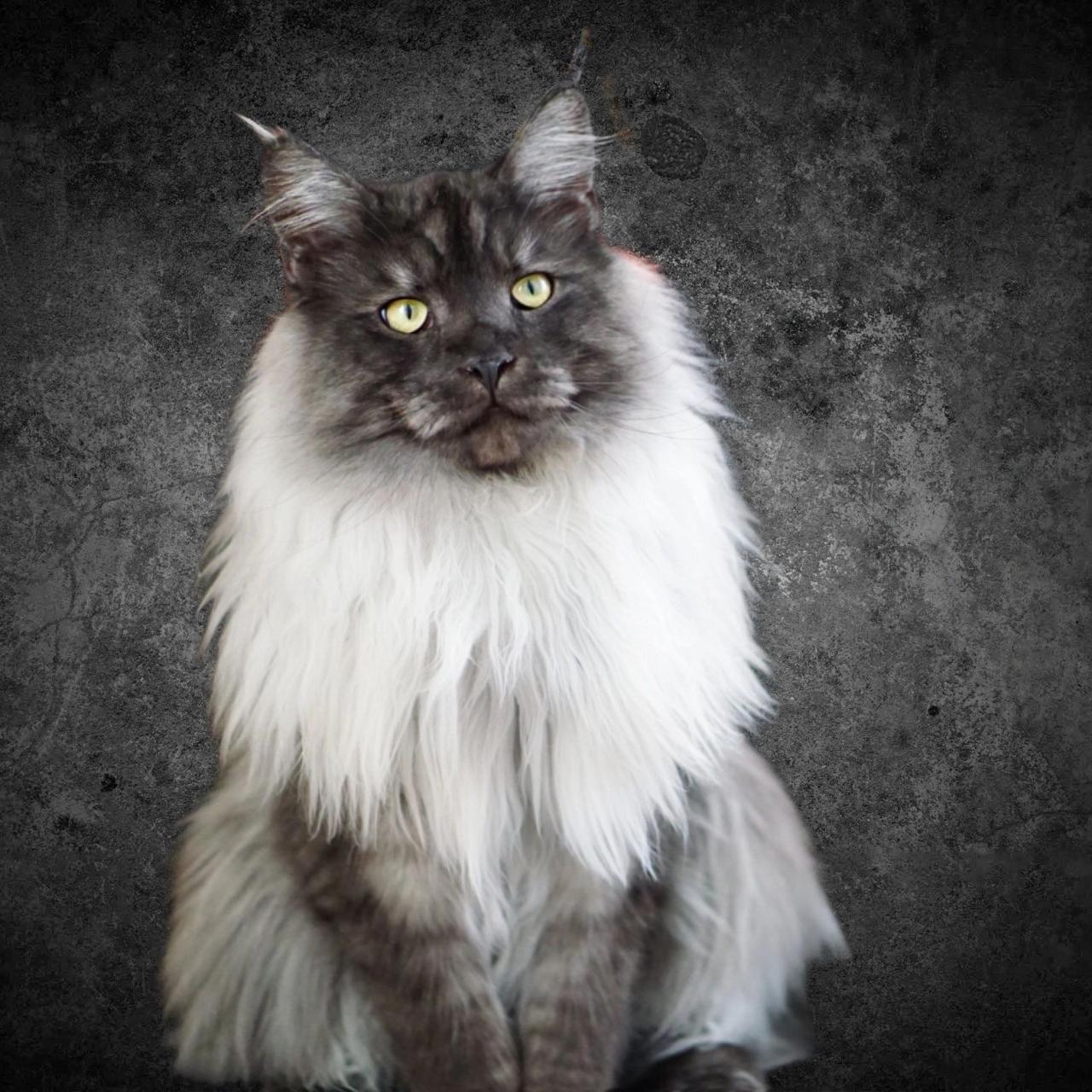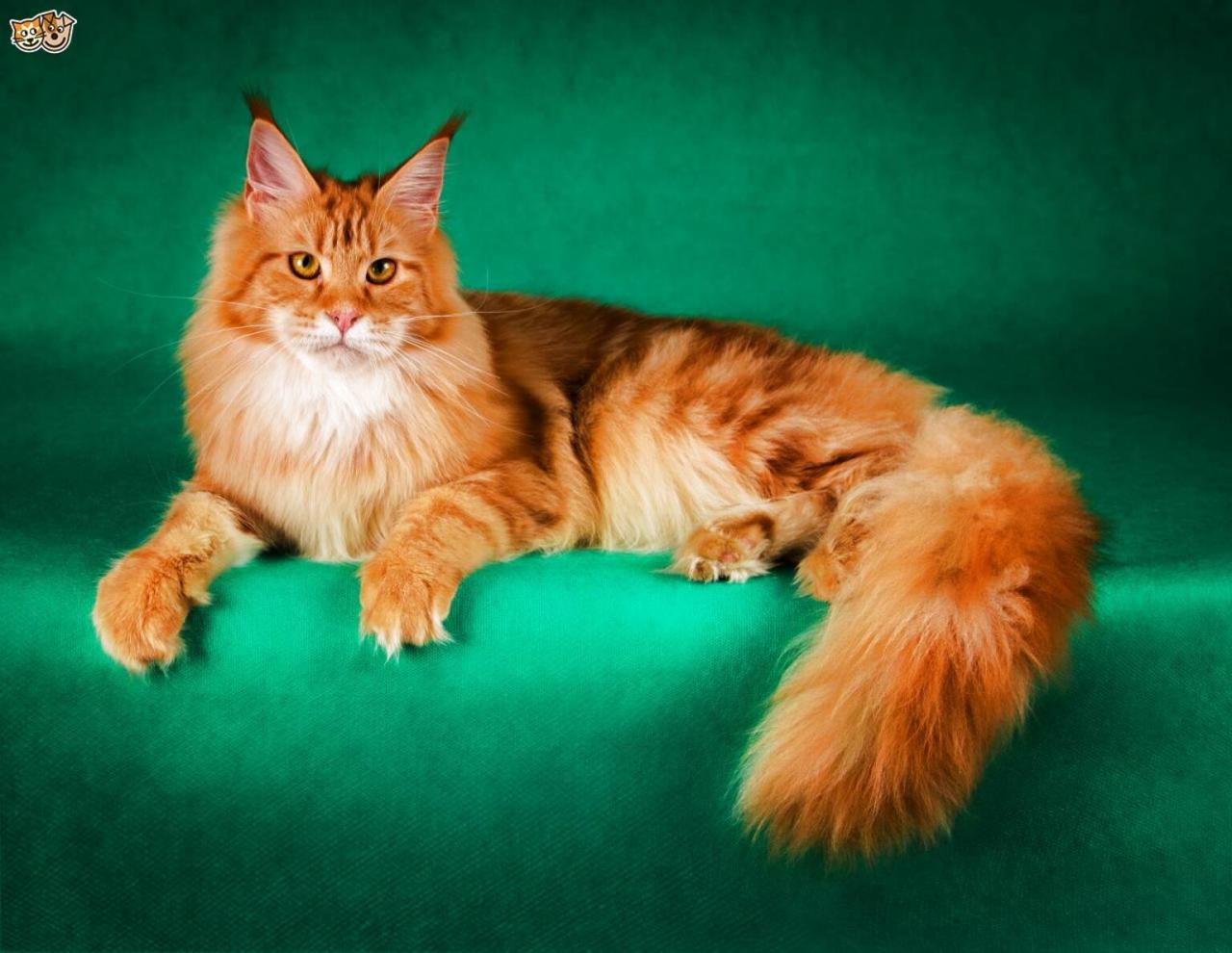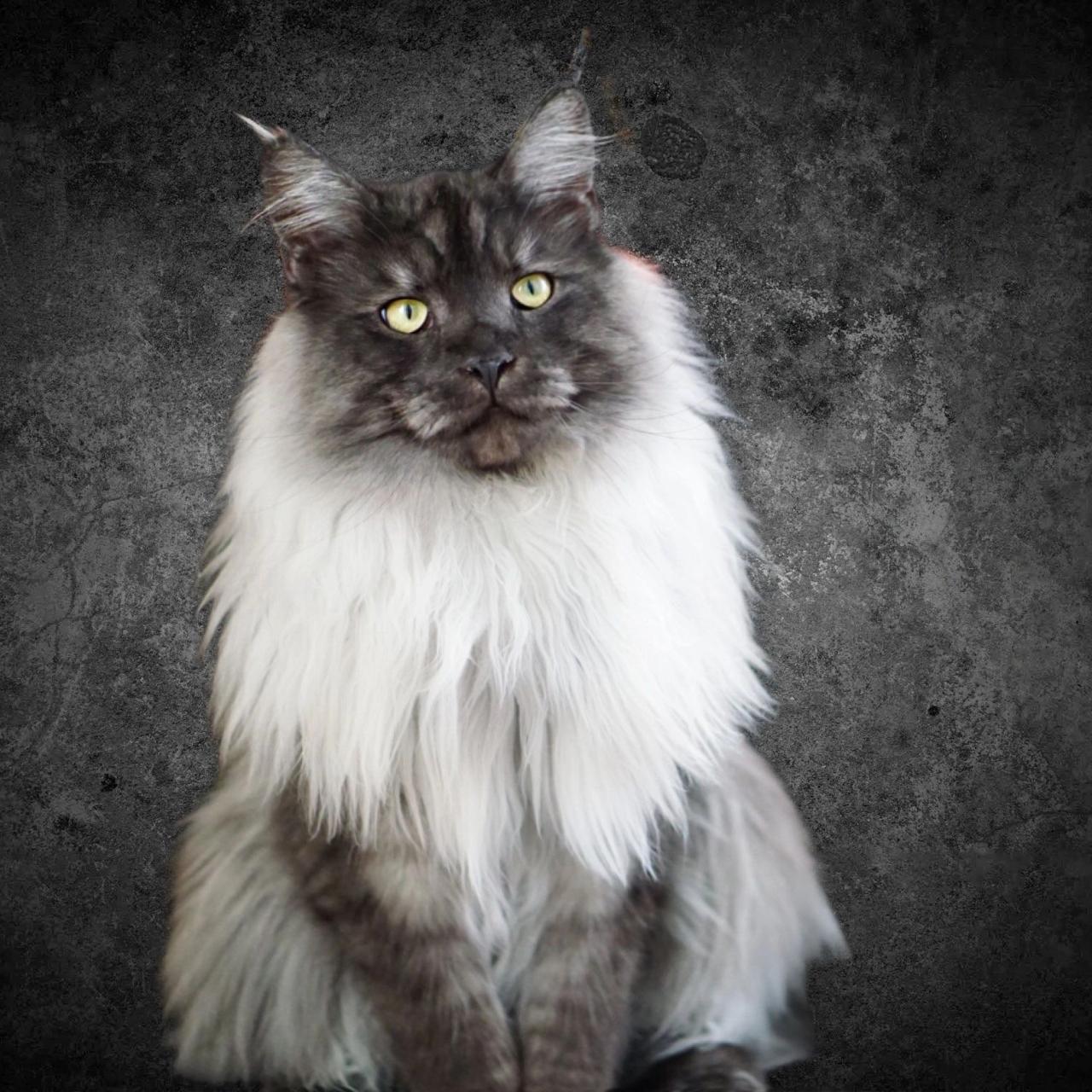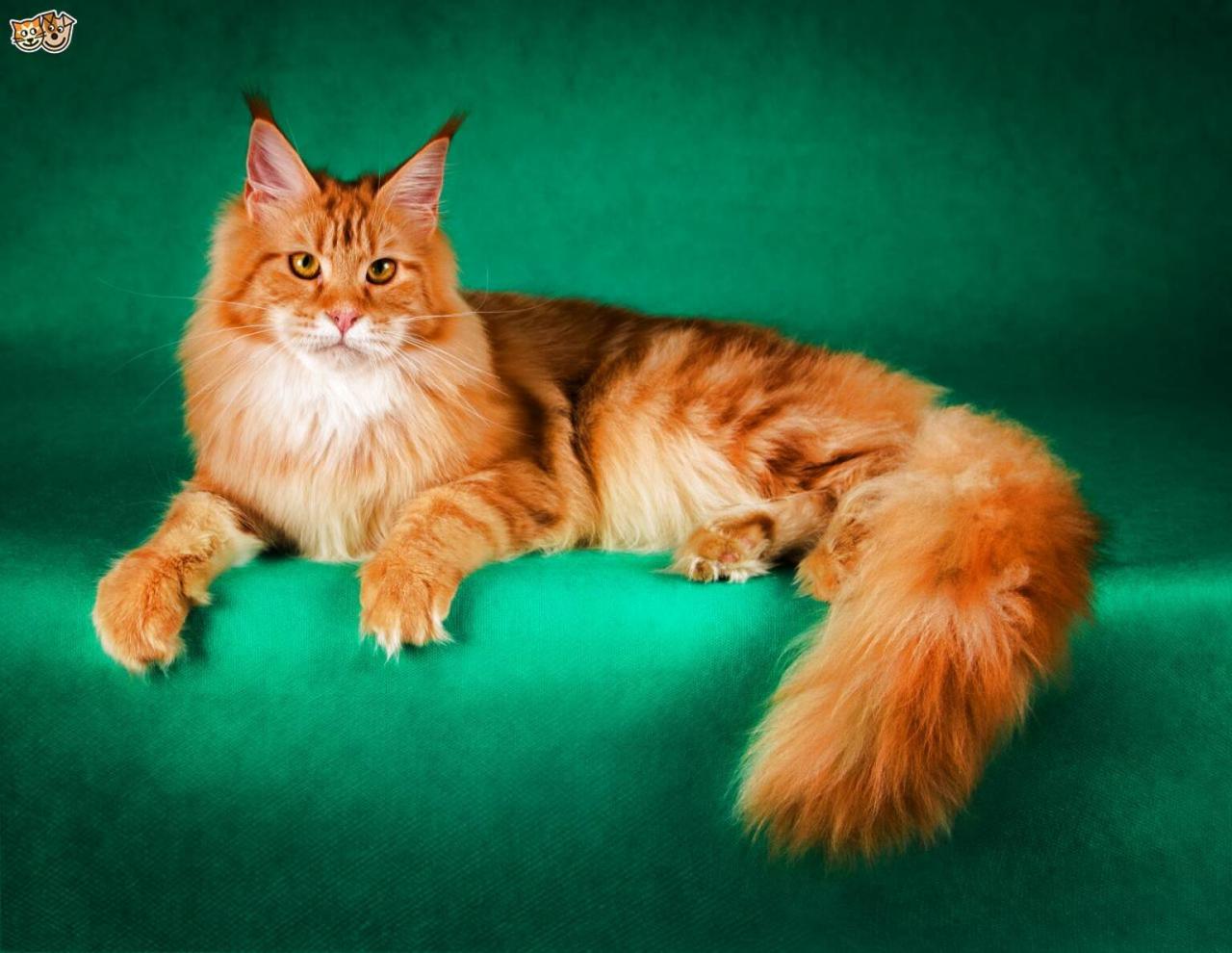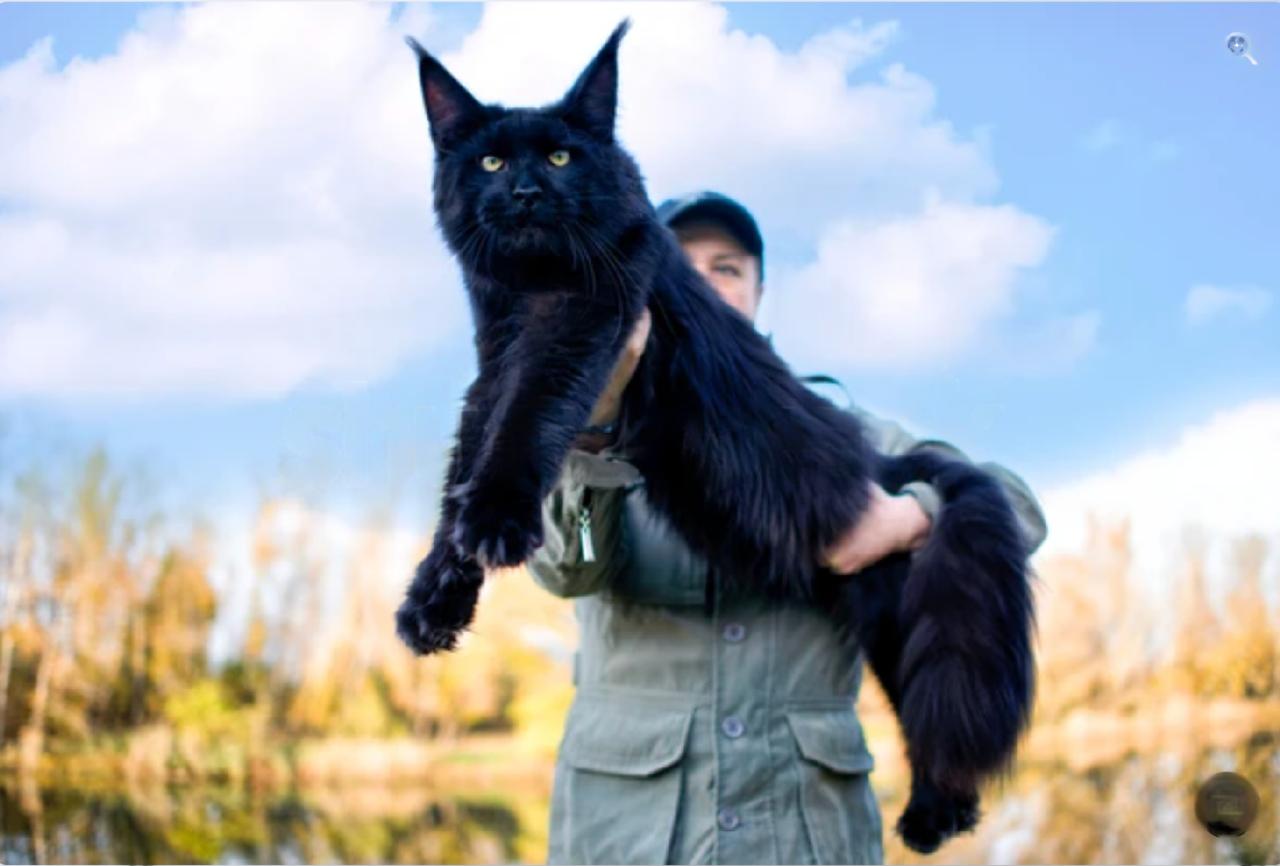Welcome to the world of Giant Maine Coon Cats for Sale, where feline grandeur meets affectionate companionship. These majestic creatures, known for their colossal size, luxurious coats, and playful personalities, are the epitome of feline royalty.
Prepare to embark on an enchanting journey as we delve into the captivating world of Giant Maine Coons, exploring their unique characteristics, health considerations, and the joys of sharing your life with one of these extraordinary felines.
Breed Characteristics
Giant Maine Coon cats are a sight to behold, renowned for their exceptional size, magnificent coat, and gentle personalities. These gentle giants are known for their robust frames, with males typically weighing between 13 and 18 pounds, while females weigh between 8 and 12 pounds.
Their impressive stature is further accentuated by their long, flowing coats that come in a wide array of colors and patterns, including classic tabby, solid black, and elegant white.
Coat Characteristics
The Maine Coon’s coat is a marvel of nature, providing both warmth and beauty. It consists of three distinct layers: a dense, water-resistant undercoat, a medium-length guard coat, and a silky, luxurious topcoat. This combination of textures creates a coat that is not only visually stunning but also highly functional, allowing these cats to thrive in even the harshest climates.
Personality Traits
Beyond their striking appearance, Giant Maine Coon cats are known for their exceptional personalities. They are gentle, affectionate, and playful companions, making them ideal for families with children. Their calm and laid-back demeanor makes them easygoing housemates, and they are known for their love of attention and cuddles.
Hypoallergenic Qualities
Despite their impressive size and thick coats, Giant Maine Coon cats are surprisingly hypoallergenic. Their saliva contains less of the Fel d 1 protein, which is a common allergen found in cat dander. This makes them a suitable choice for individuals with mild cat allergies who still long for the companionship of a feline friend.
Suitability for Families
Giant Maine Coon cats are excellent family pets. Their gentle nature and love of attention make them ideal companions for children, and they are known for their patience and tolerance. They are also highly adaptable and can thrive in a variety of living environments, making them a versatile choice for families of all sizes.
Health and Care: Giant Maine Coon Cats For Sale
Giant Maine Coons are generally healthy cats, but they are prone to certain health concerns due to their large size and long hair. Understanding these potential issues and implementing proper care practices are crucial for ensuring their well-being.
Grooming
The thick, luxurious coat of giant Maine Coons requires regular grooming to prevent mats and tangles. Brushing their fur daily with a slicker brush or comb will remove loose hair, stimulate natural oils, and promote a healthy coat. Regular bathing is also essential to keep their fur clean and free of dirt or debris.
Nutrition
A balanced diet is vital for giant Maine Coons to maintain their large size and active lifestyle. High-quality cat food formulated for large breeds provides the necessary nutrients and calories. Portion control is crucial to prevent obesity, which can strain their joints and lead to other health problems.
Exercise
Giant Maine Coons are active cats that require regular exercise to stay healthy and prevent boredom. Providing them with plenty of toys, climbing structures, and scratching posts will encourage physical activity. Supervised outdoor time in a secure enclosure can also be beneficial for their mental and physical well-being.
Health Concerns
Giant Maine Coons may be susceptible to certain health conditions, including:
- Hypertrophic cardiomyopathy (HCM):A condition where the heart muscle thickens, leading to reduced blood flow and potentially heart failure.
- Polycystic kidney disease (PKD):A genetic disorder characterized by the formation of cysts in the kidneys, which can lead to kidney failure.
- Hip dysplasia:A developmental abnormality of the hip joint, causing pain, lameness, and arthritis.
- Dental disease:Giant Maine Coons are prone to dental issues due to their large mouths and long teeth, requiring regular dental checkups and cleanings.
Regular veterinary checkups and screening tests are essential for early detection and management of these health concerns. By providing proper care and attention to their specific needs, giant Maine Coons can live long, healthy, and happy lives.
Lifespan and Size
Giant Maine Coons are known for their impressive size and longevity. They typically have a lifespan of 12-15 years, which is comparable to other domestic cat breeds.
Weight Range
Male Giant Maine Coons are noticeably larger than females, with an average weight range of 15-25 pounds. Female Giant Maine Coons, on the other hand, typically weigh between 10-15 pounds.
Size Comparison
Giant Maine Coons are among the largest cat breeds, rivaling the size of some small dog breeds. They are significantly larger than the average domestic cat, which typically weighs between 8-11 pounds.
Growth Challenges
Due to their large size, Giant Maine Coons may experience some growth challenges. They tend to grow rapidly during their first year, and their joints and bones may struggle to keep up with their rapid growth. This can lead to potential health issues such as hip dysplasia or elbow dysplasia if not properly cared for.
Availability and Pricing
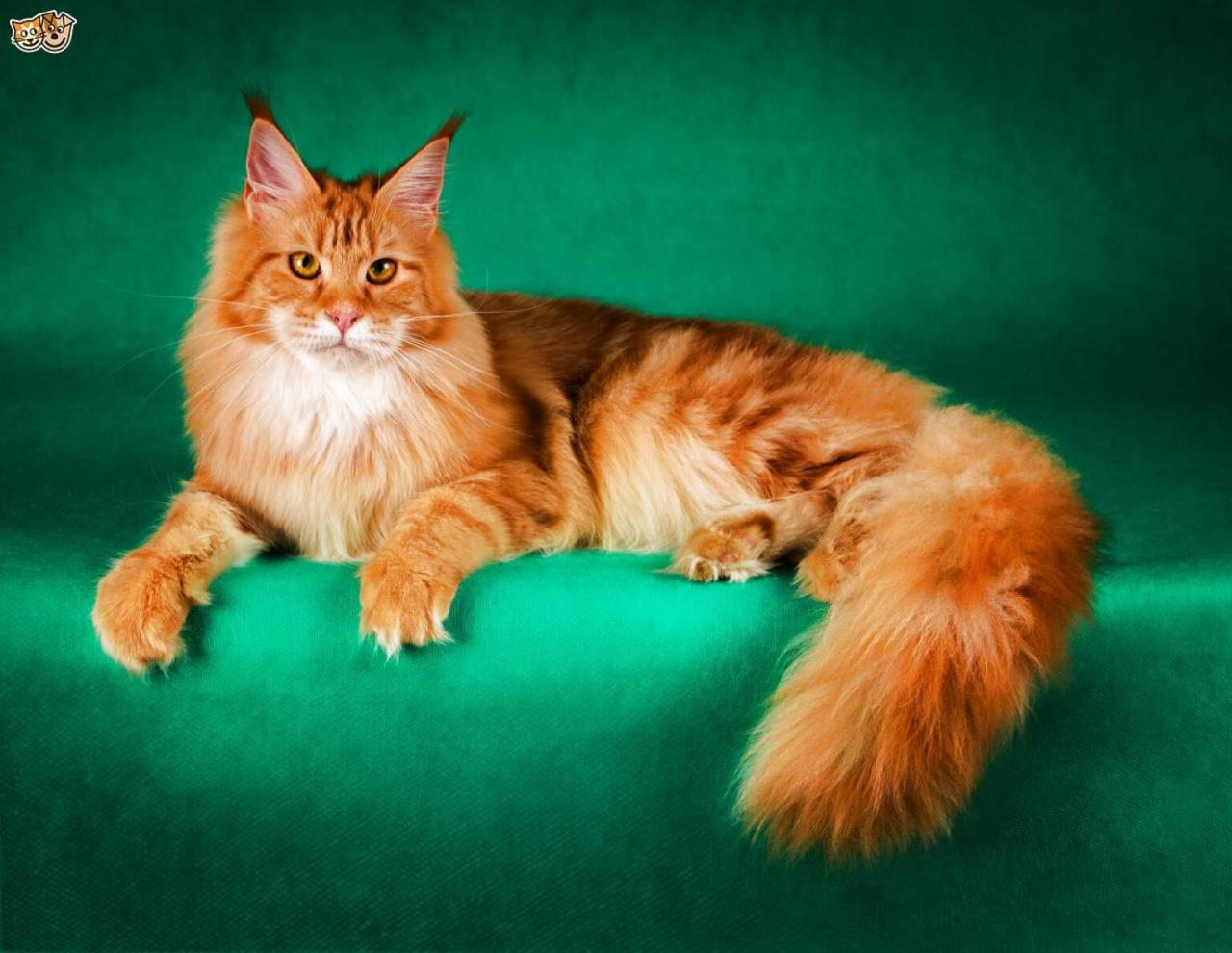
Giant Maine Coons are highly sought after, but finding reputable breeders can be a challenge. To ensure you’re dealing with ethical and experienced breeders, consider these factors:
- Look for breeders who prioritize the health and well-being of their cats, adhering to breed standards and ethical breeding practices.
- Check for breeders who have a proven track record of producing giant Maine Coons and provide references or testimonials from satisfied customers.
- Visit the breeder’s facilities in person to observe the cats’ living conditions, meet the parents, and assess the breeder’s knowledge and care.
Estimated Price Range, Giant maine coon cats for sale
The price of giant Maine Coons varies depending on factors such as age, bloodline, and breeder reputation. Expect to pay a premium for kittens and adult cats with exceptional size and quality.
- Kittens:Typically range from $1,500 to $3,000, with some breeders charging even higher prices for rare or show-quality kittens.
- Adult Cats:May cost more than kittens, ranging from $2,000 to $5,000 or higher, depending on their size, health, and breeding history.
Remember, the cost of owning a giant Maine Coon extends beyond the initial purchase price, including expenses for food, vet care, grooming, and other supplies.
Diet and Nutrition
Giant Maine Coons have specific dietary needs due to their large size and active lifestyle. Providing a well-balanced and nutritious diet is crucial for their overall health and well-being.
Their diet should be rich in high-quality protein to support their muscle mass and energy levels. Essential fatty acids, such as omega-3 and omega-6, are also vital for healthy skin, coat, and joint function. Additionally, adequate hydration is essential to prevent dehydration and support their overall health.
Meal Plan
Here is a detailed meal plan tailored to the specific dietary needs of giant Maine Coons:
- Morning:Offer 1-2 cups of high-quality dry cat food formulated for large breeds.
- Midday:Provide 1/2 can of wet cat food, ensuring it is grain-free and contains real meat as the primary ingredient.
- Evening:Serve 1-2 cups of dry cat food again, ensuring it is rich in protein and low in carbohydrates.
- Treats:Offer occasional treats, such as freeze-dried salmon or chicken, in moderation.
Remember, this meal plan is a guideline and may need to be adjusted based on your cat’s individual needs, activity level, and health status. Always consult with your veterinarian to determine the most appropriate diet for your giant Maine Coon.
Grooming and Maintenance
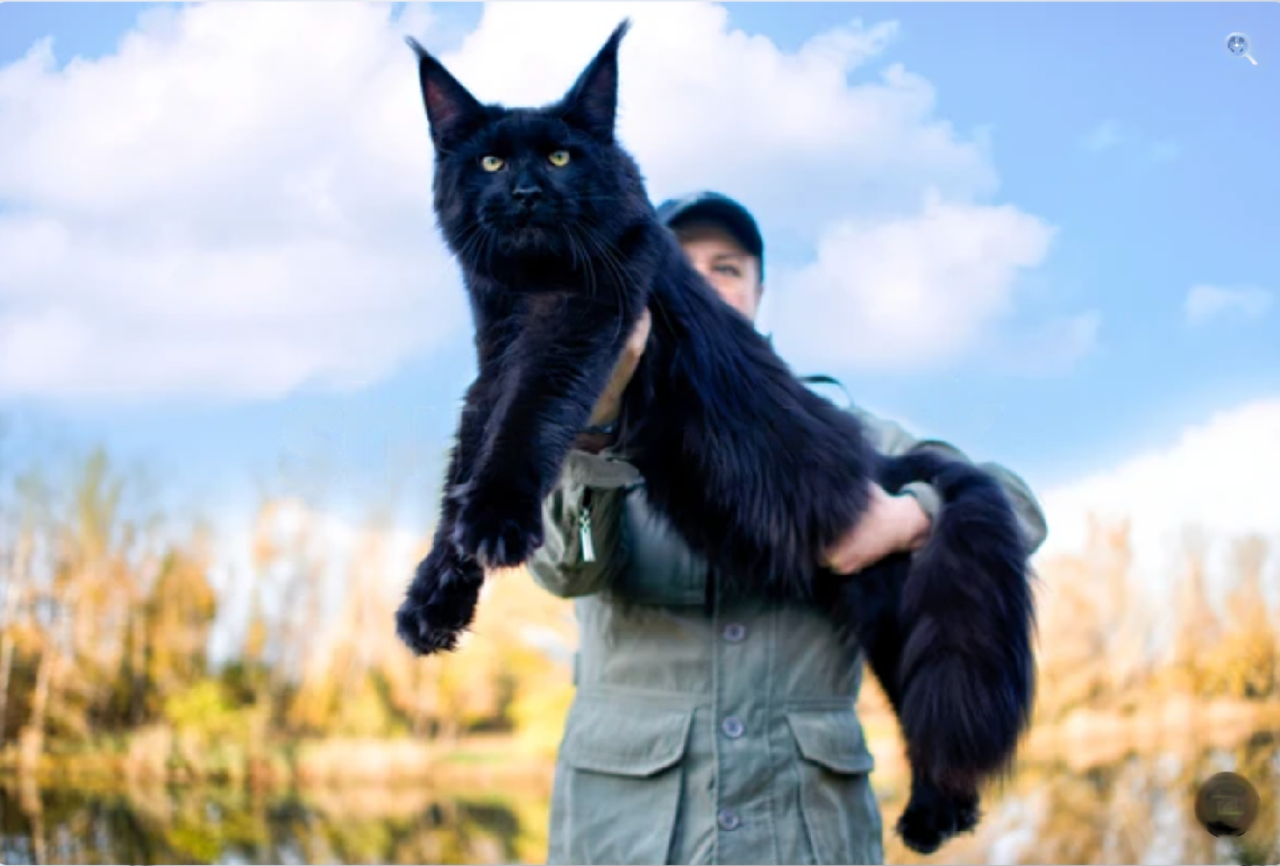
Giant Maine Coons require regular grooming to maintain their luxurious coats and prevent mats and tangles. Follow these steps for effective grooming:
Brushing:Brush your Maine Coon’s coat daily with a slicker brush to remove loose hair and prevent mats. Start from the head and work your way down the body, brushing in the direction of hair growth.
Bathing:Bathe your Maine Coon every 2-3 months using a gentle cat shampoo. Wet the cat’s coat thoroughly, apply shampoo, and massage it in. Rinse the shampoo thoroughly and towel dry the cat.
Nail Trimming:Trim your Maine Coon’s nails every 2-3 weeks using a nail clipper designed for cats. Hold the cat’s paw firmly and trim the tips of the nails, avoiding the quick (the pink part of the nail).
Dental Care:Brush your Maine Coon’s teeth regularly to prevent dental disease. Use a cat-specific toothpaste and a soft-bristled toothbrush. Start by gently lifting the cat’s lips and brushing the outside of the teeth. Gradually work your way to the inside of the mouth as the cat becomes comfortable.
Training and Socialization
Training giant Maine Coons requires patience and positive reinforcement. Start training early to establish good habits and prevent behavioral issues. Use treats, praise, and play as rewards for desired behaviors. Avoid punishment, as it can damage your bond with your cat and make training less effective.
Early Socialization
Socializing your giant Maine Coon from a young age is crucial to prevent shyness or aggression. Expose them to various people, animals, and environments in a safe and controlled manner. This will help them develop confidence and learn to interact appropriately with others.
Litter Box Training
Most giant Maine Coons are easily litter box trainable. Place the litter box in a quiet, private location and introduce your kitten to it. Use a shallow litter box with low sides initially, and gradually transition to a larger box as they grow.
Scratching Post Training
Giant Maine Coons have a natural instinct to scratch. Provide them with scratching posts or pads to redirect their scratching behavior away from furniture. Place scratching posts in areas where your cat frequently scratches, and encourage them to use them with treats or praise.
Exercise and Play
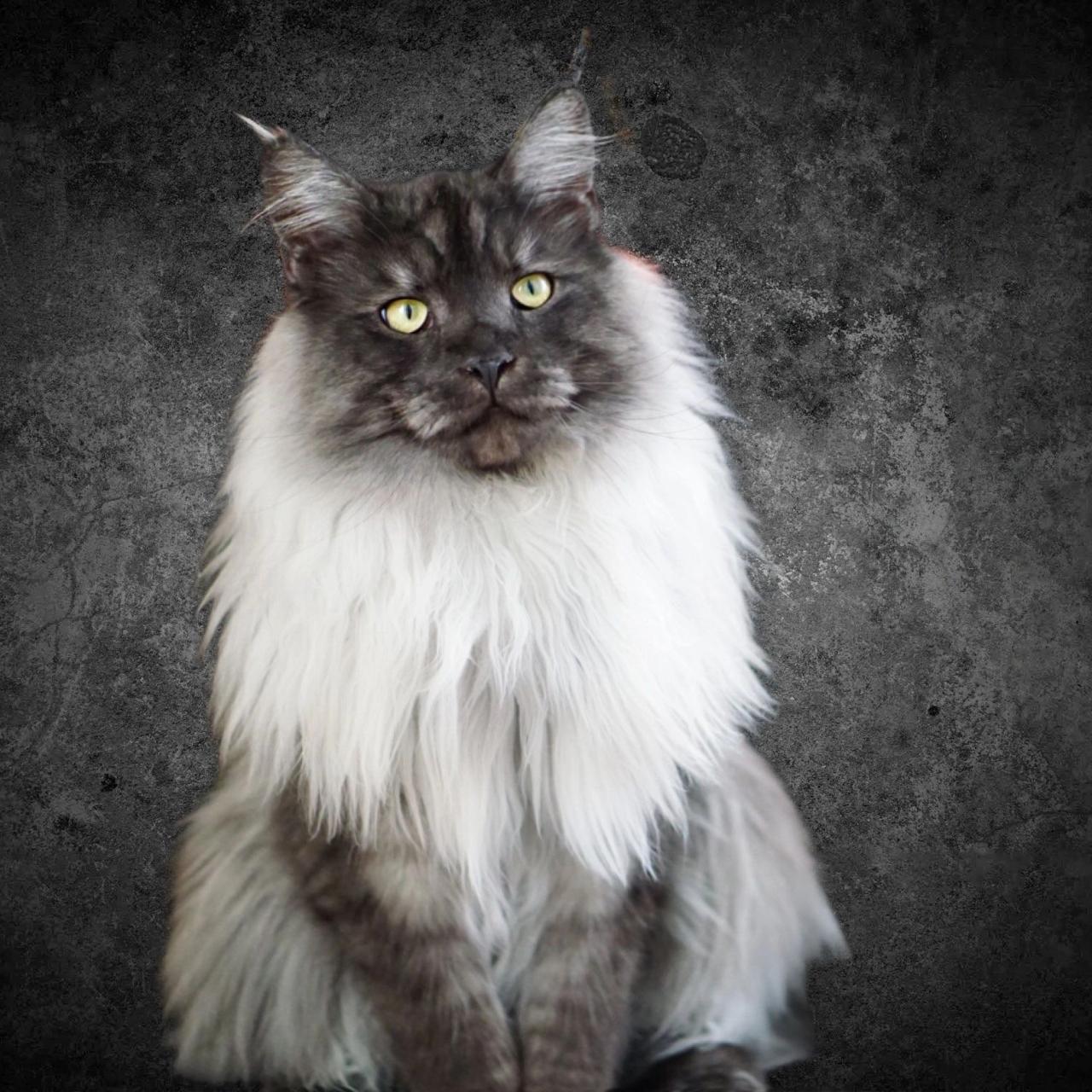
Giant Maine Coons have a reputation for being laid-back and relaxed, but they still need regular exercise to stay healthy and happy. A well-rounded exercise plan should include both indoor and outdoor activities.
Indoor Activities
- Interactive toys:Giant Maine Coons love to play with interactive toys that challenge their intelligence and keep them entertained. Some good options include puzzle feeders, laser pointers, and wand toys.
- Cat trees:Cat trees provide a great way for giant Maine Coons to climb and scratch, which are both natural behaviors for them. Make sure to choose a cat tree that is tall enough and sturdy enough to support their large size.
- Hide-and-seek:Giant Maine Coons love to hide, so playing hide-and-seek is a great way to get them moving. You can hide treats around the house and let them search for them.
Potential Health Issues
Giant Maine Coons are generally healthy cats, but like all breeds, they are prone to certain health problems. Some of the most common health issues seen in giant Maine Coons include:
Hypertrophic cardiomyopathy (HCM) is a condition in which the heart muscle becomes thickened and enlarged. This can lead to heart failure and is the leading cause of death in cats. Symptoms of HCM can include lethargy, shortness of breath, and coughing.
Diagnosis of HCM is typically made with an echocardiogram, which is an ultrasound of the heart. Treatment for HCM may include medication to help strengthen the heart muscle and slow its progression.
Polycystic kidney disease (PKD) is a condition in which cysts develop in the kidneys. These cysts can cause the kidneys to fail and can lead to death. Symptoms of PKD can include increased thirst, urination, and weight loss. Diagnosis of PKD is typically made with an ultrasound of the kidneys.
Treatment for PKD may include medication to help slow the progression of the disease and supportive care to help manage the symptoms.
Other Health Issues
- Hip dysplasia
- Elbow dysplasia
- Dental disease
- Obesity
It is important to note that not all giant Maine Coons will develop these health problems. However, it is important to be aware of the potential risks so that you can take steps to prevent or manage them.
Breeding and Genetics
Maine Coons’ colossal stature is attributed to a unique genetic makeup. The autosomal dominant gene, known as the growth hormone receptor (GHR) gene, plays a pivotal role in determining their size. This gene regulates the production of growth hormone, which is essential for skeletal and muscular development.
Responsible breeding practices are crucial to preserve the breed’s exceptional characteristics. Breeders should prioritize genetic diversity to prevent health issues associated with inbreeding. Maintaining a wide gene pool ensures the continuation of the Maine Coon’s distinctive traits, including their large size, thick fur, and gentle temperament.
Preserving Genetic Diversity
- Using a diverse pool of breeding stock
- Avoiding breeding closely related individuals
- Importing breeding stock from different geographical regions
Comparison to Other Breeds
Giant Maine Coons are not only known for their size but also for their distinct characteristics that set them apart from other large cat breeds. Here’s a comprehensive comparison table highlighting the differences between giant Maine Coons, Ragdolls, and Norwegian Forest Cats:
Size
| Breed | Weight | Length | Height |
|---|---|---|---|
| Giant Maine Coon | 13-25 lbs | 30-40 inches | 10-16 inches |
| Ragdoll | 10-20 lbs | 17-25 inches | 8-12 inches |
| Norwegian Forest Cat | 12-20 lbs | 30-40 inches | 9-12 inches |
Temperament
- Giant Maine Coons:Gentle giants known for their laid-back and affectionate nature.
- Ragdolls:Extremely docile and floppy, earning them the nickname “rag dolls.”
- Norwegian Forest Cats:Independent and playful, with a strong hunting instinct.
Grooming Requirements
- Giant Maine Coons:High maintenance, requiring regular brushing and occasional baths.
- Ragdolls:Medium maintenance, with regular brushing to prevent matting.
- Norwegian Forest Cats:Medium maintenance, with seasonal shedding that requires more frequent brushing.
Ultimate Conclusion

As we conclude our exploration of Giant Maine Coon Cats for Sale, let us remember the indelible mark they leave on our hearts and homes. Their gentle nature, playful spirit, and unwavering loyalty make them not just pets but cherished companions for life.
Whether you are an experienced cat enthusiast or a first-time feline friend, a Giant Maine Coon is an exceptional choice that will bring years of love, laughter, and unforgettable memories.

